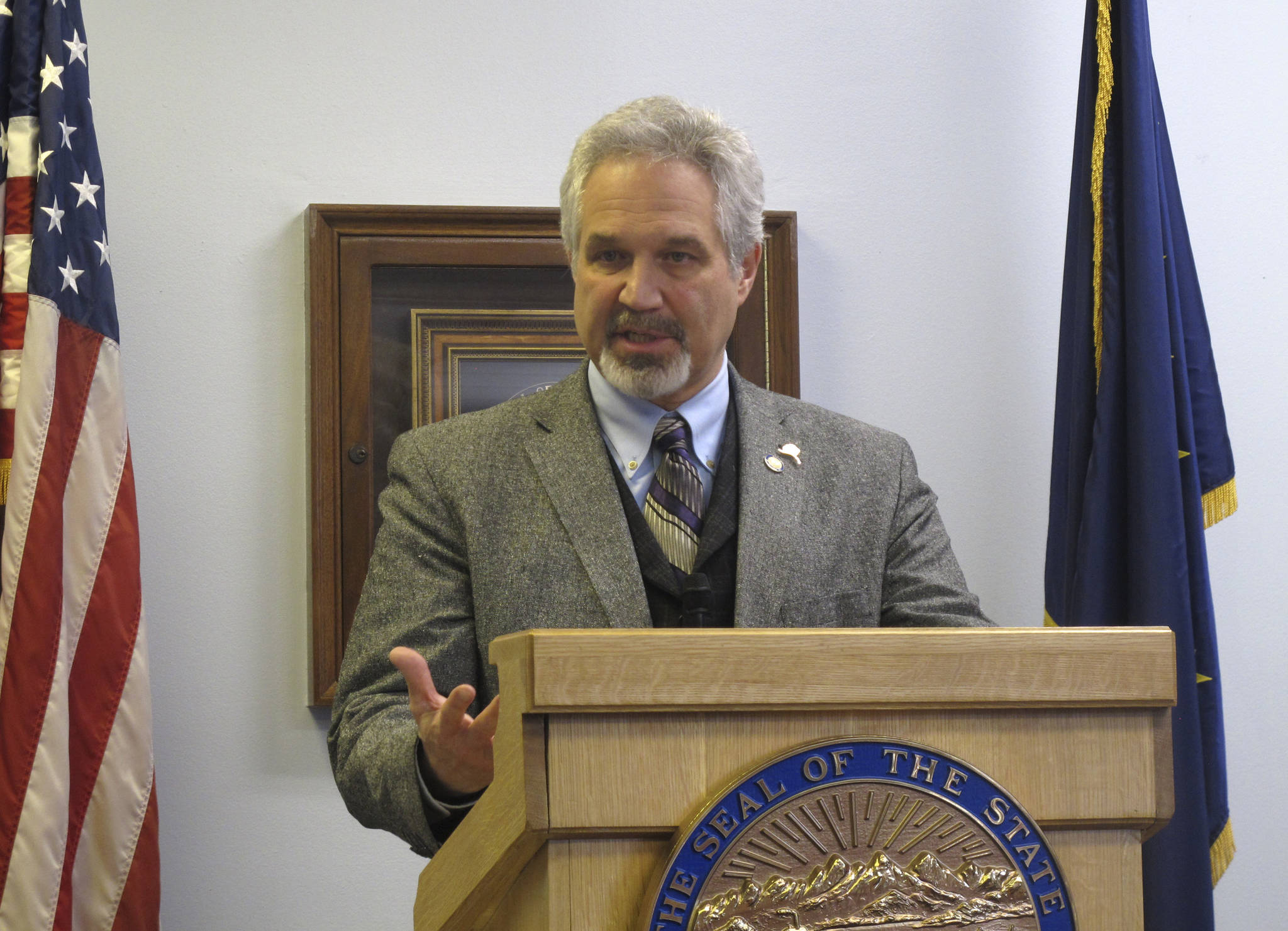JUNEAU — Leaders of the Republican-led Alaska Senate said Thursday they aren’t interested in instituting an income tax or raising oil industry taxes as a way to address the state’s multibillion-dollar deficit.
Their position is at odds with state House leaders, who have seen a broad-based tax, like an income tax, and a rewrite of oil tax and credit policy as key elements of a fiscal plan.
The House even conditioned approval of the one piece of a fiscal plan on which there’s general agreement — use of earnings from Alaska’s oil-wealth fund — to those other pieces passing.
Senate President Pete Kelly called the House’s move an interesting play and stressed the Senate’s resolve in opposing an income tax.
“We’ve said it before and will continue to say it. The only thing standing between Alaskans and an income tax right now is the Senate,” the Fairbanks Republican said.
The Senate will produce a mathematically sound fiscal plan that protects the private sector and is in the best interest of the state, Kelly told reporters.
Senate leaders did express a willingness to review the state’s oil tax credit structure but said they didn’t want to raise taxes on the industry.
The oil tax and credit overhaul that passed the House would, among other things, eliminate cashable credits for the North Slope and result in a tax increase at oil prices between about $50 and $100 per barrel, according to a Department of Revenue analysis. Senate hearings on the bill are expected to begin Friday.
With the budget and pieces of a fiscal plan unresolved, the Legislature is expected to run beyond the scheduled 90 days. Sunday marks Day 90.
Since the voter-approved 90-day limit took effect in 2008, lawmakers on numerous occasions have blown past it or needed special sessions to complete their work. The constitution allows for sessions of up to 121 days. The Senate has proposed focusing on a limited number of bills after Sunday, with some senators planning to send home staff who do not live in Juneau.
The major deficit-reduction piece being considered calls for structured draws from the earnings of the Alaska Permanent Fund, an oil-wealth fund that has grown through investments. The fund’s estimated market value is about $57 billion.
For the past five years, the state has had deficits and been using savings to get by. Gov. Bill Walker has advocated for a comprehensive fiscal plan to avoid simply continuing to draw down reserves.
The House and Senate have each passed their own versions of a permanent fund bill, significant given the discord on the issue last year in the House, where a permanent fund bill died in committee.
Both versions would initially limit the size of the dividends Alaskans receive from the fund and change how later dividends are calculated. Initial dividends would be at least $1,250 in the House bill and $1,000 in the Senate bill.
The Senate plan sought to limit future state spending. The House plan added the conditional language. House majority leaders have said a permanent fund bill alone is not enough.
Since a permanent fund bill is a priority for the House, Senate and Walker, Senate Finance Committee Co-Chair Lyman Hoffman said he hoped the differences could be hashed out.

